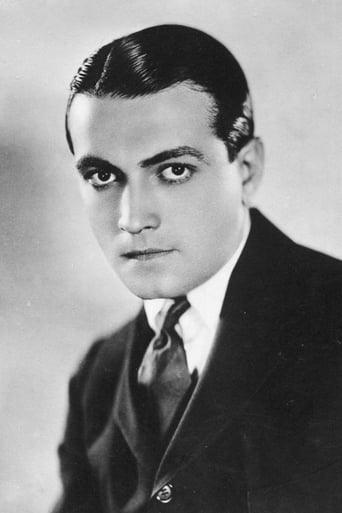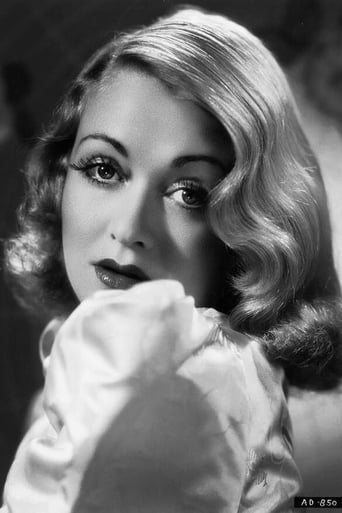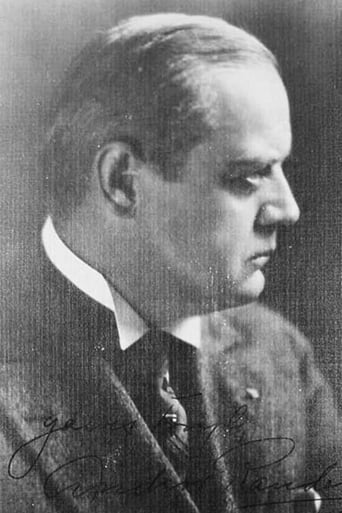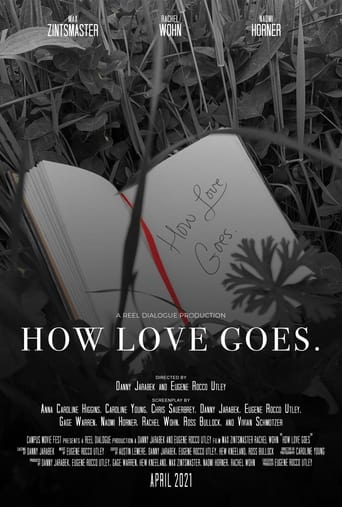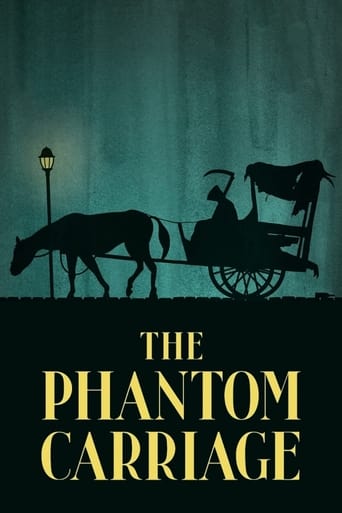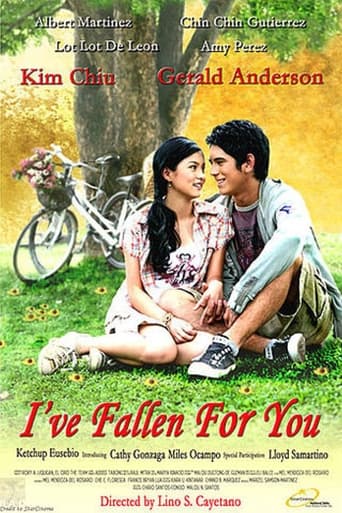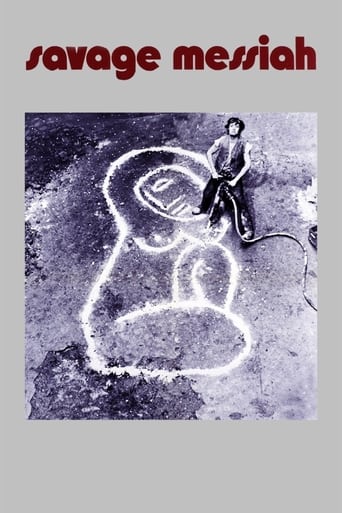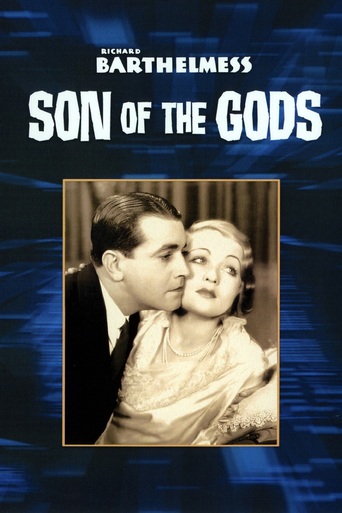
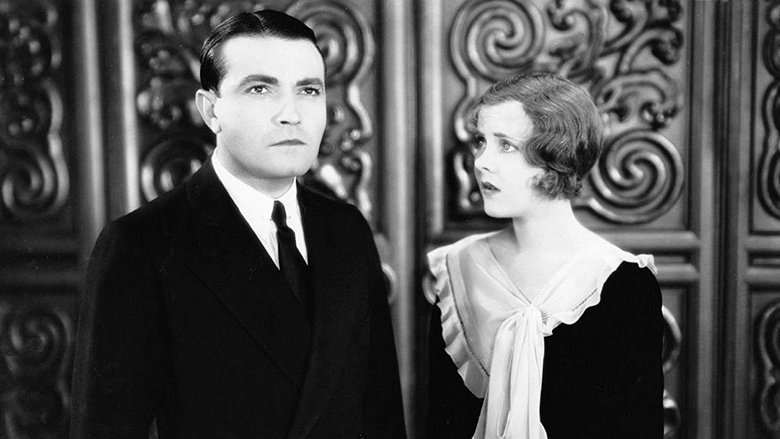
Son of the Gods (1930)
The popular Caucasian-looking son (Richard Barthelmess) of a wealthy Chinese businessman lives away from his widowed father and passes as white, but experiences prejudice, rejection, insult, and heartache when the socialite (Constance Bennett) he loves learns of his heritage.
Watch Trailer
Cast
Similar titles


Reviews
Best movie of this year hands down!
Entertaining from beginning to end, it maintains the spirit of the franchise while establishing it's own seal with a fun cast
Blistering performances.
All of these films share one commonality, that being a kind of emotional center that humanizes a cast of monsters.
Oh, what a cringe-inducing moment it is, to see Constance Bennett's face contort in shock and anger when she discovers her new lover (Richard Barthelmess) is "Chinese", and then goes and strikes him repeatedly in public. There is some solace in her being suitably apologetic afterwards, getting chastised, and then still loving him, but the film's real triumph is in treating Asian-Americans with dignity, and showing the hypocrisy of white people. How fantastic is it when early on he says "They are liars and hypocrites. Their religion teaches love and brotherhood and equality, but they worship money and prejudice!"Now you may be thinking as I did, Richard Barthelmess is Asian? And this is one of the film's weaknesses, as is E. Alyn Warren (another Caucasian) playing his father. You'll have to bear with that part, and forgive the film for not putting Asian actors in primary roles, though in Barthelmess's case, it is eventually explained. If you can do that, you may find it refreshing that the characters (including the servants) speak eloquently, and have a sense of class in the face of the racism of others. It's far from perfect, but its heart is in the right place, respecting the culture, and pointing out one's character is more important than one's race ("love knows no barriers"). Another great quote, practically reading the mind of the viewer 88 years later, is when he questions "Why should I be glad..." to be Caucasian, and not Asian.Now, how it resolves itself takes away from a little of the message, but what a difference this one is from others from the time which were hyping 'yellow peril'. It is a little creaky in places, with slow and stilted dialogue, but Bennett livens things up a bit with her playful presence and defiance of her father. "Take me in your arms, and dance with me," she implores Barthelmess, and then later "Kiss me, and don't talk." It's an average film and certainly not going to blow you away, but I bumped it up a bit for the step it took in the racial dialogue, even if it can't be judged by today's standards.
Stunningly racist early talkie in which Chinese (first howler) Richard Barthelmess loves wealthy jet-setter Constance Bennett, but when she finds out his heritage she's immediately shocked, flogs him publicly ("You cur!"), and then is immediately sorry. No matter: Ten minutes into this thing I murmured, "Oh, it's going to turn out he's not really Chinese," and I was right. All the head-shaking and tut-tutting about the mixing of the races now looks absurd, and the phony fascination with Chinoiserie is stilted--much hushed talking in what may or may not be Mandarin, a gaudy Oriental production design. You'll hear "Chink" and "yellow" and other epithets mouthed with ear-splitting disdain, and you'll feel for poor Barthelmess, who is sensitive and dignified but has an unplayable role. Add to that some Irish stereotyping from supporting players and a poorly motivated flashback late in the film (is this where the Technicolor came in? It's in the credits but the surviving print is B&W), and you have an ineptness scarcely believable in an estimable director like Frank Lloyd. Maybe, in so-different 1930, it wasn't the howler it is today.
When talkies came along Richard Barthelmess, who had been a top star from the early 1920s, proved to be one of the very few silent stars whose career, at least initially, went from strength to strength. Not only was he placed 6th in a box office popularity poll in 1931, his salary (in 1933) was one of the highest, being around $8,500 a week, which made it quite easy for Warners to drop him when his contract came up for renewal and his star began to fall. But before then he showed a lot of versatility by tackling roles such as a crusading news reporter ("The Finger Points"), an ex-flyer ("The Last Flight"), a disillusioned war veteran ("Heroes For Sale") and even a share cropper ("The Cabin in the Cotton").Unfortunately it would take all his skill and the allure of his leading lady to get people into the cinema for "Son of the Gods" - a drama about the romance between a sophisticated girl and a wealthy college boy who neglects to tell her of his Oriental parentage. Constance Bennett kept gossip magazines working overtime as she spouted her opinions about marriage, wealth and life in general, so people hurried to the cinema to see the outspoken actress they thought they knew.When Sam Lee (Barthelmess), a wealthy but shy college student invites his "friends" out to an exclusive night club, "The Bird Cage", the evening turns sour when one of the girls finds out that he is - shock!! horror!! - Chinese!! This is the last straw for Sam who realises the only friends he has are those that envy him his wealth. He feels he lacks the humility his father expects of him and decides to sail to Europe, working his way as he goes. He finds employment with Mr. Bathurst, a British writer who uses Sam as a researcher for the Chinese section of the play he is writing. Bathurst knows Sam's history and, unlike the Americans, respects his honor and integrity.Sam meets beautiful Allana Waggner (Bennett) who gives him to understand that if a man has her love it doesn't matter who or what his parentage, she will give her all. Which makes the story very cringe worthy in that when she finds out he is nothing more than a "common Chinaman" she goes off her rocker and attacks him in the cafe with a riding crop!!! This movie doesn't have anything in common with "Broken Blossoms", except to point out that little had changed in the meantime and that in 1930 being Chinese carried the same stigma as being a leper, in white man's eyes. I have seen Constance Bennett in a few films and I was surprised by her amateurish acting at the start - she did improve as the film progressed and was quite good in the scenes where she had to suffer. Apparently "The New York Times" was unimpressed with her histrionics and deliberately referred to her as Constance Talmadge throughout the review.Of course the one person who does treat him as an equal is Eileen (Mildred Van Dorn) a sweet Irish girl who would make him a perfect wife and whose uncle holds the key to Sam's mysterious past but love is blind and Allana's treatment brings him back to America a changed man. He finds his father dead and, fed up with the contempt and treachery of the white race, decides to live as a Chinese man - which includes frequenting Oriental dives!!! He takes over his father's business and his tough and ruthless methods tear down all the good will his father had built up. I suppose to appease the public, the twist at the end, that he was not Chinese but really a foundling (played by the always cute Dickie Moore) taken in by the Lees, didn't mean much as Allana didn't want to know anything about his past but wanted to love him unconditionally.re the Technicolor sequence. I think it was the scene which took place in the back of the car Sam was driving. Suddenly his friends launch into a song "Pretty Little You" (which I can remember from "Sally"), their lips turn dark and their cheeks become "rosy" - all signs that color was used.
A wealthy young man, raised as a SON OF THE GODS, must confront his Chinese heritage while living in a White world.Although the premise upon which this film is based is almost certainly a biological impossibility and the secret of the plot when revealed at the movie's conclusion makes all which has preceded it faintly ludicrous, the story still serves up some decent entertainment and good acting.Richard Barthelmess has the title role as the sweet-natured Oriental whose life is terribly complicated because he looks Caucasian. Barthelmess keeps the tone of his performance serious throughout, gazing intently into the middle distance (a mannerism he developed during Silent Days) whenever his character is indecently misused. He makes no attempt to replicate his classic performance in D. W. Griffith's BROKEN BLOSSOMS (1919) and this is to his credit. Beautiful Constance Bennett is the millionaire's daughter who makes Barthelmess miserable. She is gorgeous as always, but her behavior does not endear her to the viewer and her terrible illness in the final reel is kept mercifully off screen.Multi-talented Frank Albertson has a small role as Barthelmess' improvident buddy. Serene E. Alyn Warren and blustery Anders Randolf play the leading stars' very different fathers, while Claude King distinguishes his brief appearance as the English author who befriends Barthelmess.Movie mavens will recognize little Dickie Moore, uncredited, playing Barthelmess as a tiny child.The original Technicolor of the flashback sequence has faded with time to a ruddy tint. The shot purporting to be the South of France instead looks suspiciously like Avalon on Santa Catalina Island, off the coast of Southern California.
